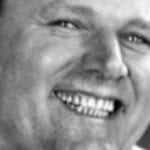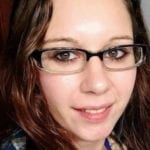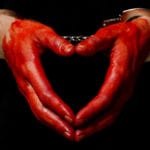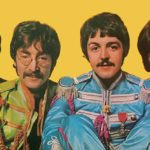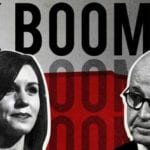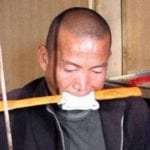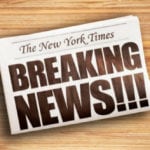 History
History  History
History  Health
Health 10 Everyday Activities That Secretly Alter Consciousness
 History
History Top 10 Historical Disasters Caused by Someone Calling in Sick
 Animals
Animals 10 New Shark Secrets That Recently Dropped
 Movies and TV
Movies and TV 10 Forgotten Realities of Early Live Television Broadcasts
 Technology
Technology 10 Stopgap Technologies That Became Industry Standards
 Weird Stuff
Weird Stuff 10 Wild Facts About Taxidermy That You Probably Didn’t Know
 Travel
Travel 10 Beautiful Travel Destinations (That Will Kill You)
 Miscellaneous
Miscellaneous 10 Modern Marriage Rituals Born from Corporate Branding
 Weird Stuff
Weird Stuff Ten Bizarre Visions of 2026 from Fiction
 History
History 10 “Modern” Problems with Surprising Historical Analogs
 Health
Health 10 Everyday Activities That Secretly Alter Consciousness
 History
History Top 10 Historical Disasters Caused by Someone Calling in Sick
Who's Behind Listverse?

Jamie Frater
Head Editor
Jamie founded Listverse due to an insatiable desire to share fascinating, obscure, and bizarre facts. He has been a guest speaker on numerous national radio and television stations and is a five time published author.
More About Us Animals
Animals 10 New Shark Secrets That Recently Dropped
 Movies and TV
Movies and TV 10 Forgotten Realities of Early Live Television Broadcasts
 Technology
Technology 10 Stopgap Technologies That Became Industry Standards
 Weird Stuff
Weird Stuff 10 Wild Facts About Taxidermy That You Probably Didn’t Know
 Travel
Travel 10 Beautiful Travel Destinations (That Will Kill You)
 Miscellaneous
Miscellaneous 10 Modern Marriage Rituals Born from Corporate Branding
 Weird Stuff
Weird Stuff Ten Bizarre Visions of 2026 from Fiction
10 ‘Self-Made’ Billionaires Who Owe Everything To Their Families
The American Dream promises that you can be whoever you want to be if you work hard enough. In its most extreme form it means that to be a billionaire you just have to work hard and be smart. But plenty of today’s most prominent billionaires and titans of industry had plenty of help from good ol’ mom and dad.
10Donald Trump
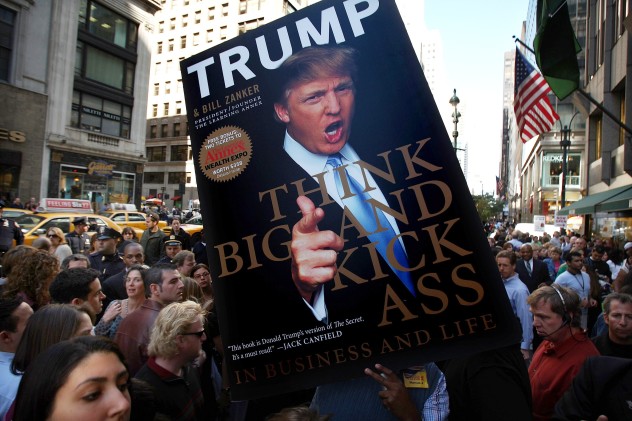
The real-estate mogul touts being “self-made” so loudly that even the BBC, supposedly a beacon of quality reporting, once bought into it. But the real self-made Trump was his father, Fred. The patriarch of the Trump family became wealthy in the Robert Moses age, building affordable housing for low-income families after starting his own construction company while still in high school. Fred eventually built more than 27,000 homes in Queens and Brooklyn, amassing a personal fortune of up to $300 million in the process.
Unlike his flashy son, Fred Trump was known as a frugal man, who would walk around construction sites picking up dropped nails to give back to his carpenters and who often personally took on exterminator duties in his buildings. And while the attention-seeking Donald proudly touts his ownership of Trump Tower, Trump Plaza, and the Trump Taj Mahal Casino, Fred had to be reluctantly talked into discretely naming one of his apartment buildings Trump Village. Fred’s cash and connections helped his son get his start as a developer, and his inheritance arguably saved Donald in the 1990s, when he reportedly needed a $20 million loan from his siblings to stay afloat.
9The Koch Brothers
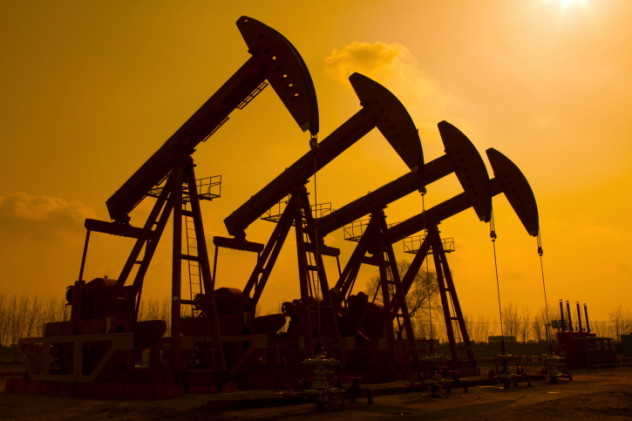
While Charles Koch tries to sell his book, The Science Of Success, as a surefire guide to the business world, the fact is that he and his brothers indisputably owe a lot to their father, Fred Koch, who kickstarted the family’s wealth by working for Stalin’s Soviet Union during the 1920s and ’30s, building a company which he eventually passed on to his children. Fred had partnered with two former Universal Oil Products engineers to develop a new oil refining technique. Unfortunately, it closely resembled a patented technique owned by Universal Oil Products and the resulting lawsuits drove his company out of business in the US (although he won all the lawsuits in the end). Instead, Fred went into business with the Soviet Union, who commissioned him to train engineers and build 15 new refineries.
The Soviet deal saved the Koch fortune, but it left Fred with a deep hatred of Communism and government regulation, which he passed on to his sons. The government abuses he saw in Russia weren’t enough for him to pull out of the deal, but the Kochs have never had a problem separating business from ideals. For example, Charles and David Koch have long called for an end to ethanol subsidies while directly profiting from them through their own ethanol business. The anti-war libertarian brothers have also made millions from contracts with the Department of Defense. At least their books are consistent with libertarian thought, even if the same can’t be said of their actual business practices.
8Bill Gates

A foundational myth of Microsoft is that Bill Gates was a prodigy who started programming at the age of 13. But in 1968 it took much more than smarts to become a programming whiz kid. This was before the age of personal computing, and it was extremely rare for colleges to have access to a computer, much less a middle or high school. But Bill was lucky enough to have wealthy parents, who enrolled him in Seattle’s exclusive Lakeside School. When a local company offered to donate computer time to the school, Bill’s mother Mary helped to organize a rummage sale to purchase a teletype terminal for the school to access it on. Bill and his friend Paul Allen were fascinated by the machine and soon came to dominate the school’s computer lab, developing the skills that would serve them well later in life.
So, while Bill Gates was unquestionably a natural when it came to programming, he probably wouldn’t have had a chance to discover it until much later had it not been for his parents. His mom might have come to the rescue again years later, when computing giant IBM asked Microsoft to design an operating system for its new PC. Mary Gates was on the board of United Way, as was IBM CEO John Opel, and it has been suggested that she might have introduced Opel to her son’s fledgling software company. Bill has also credited his mother’s charitable activities with inspiring his own legendary philanthropic endeavors.
7Rupert Murdoch
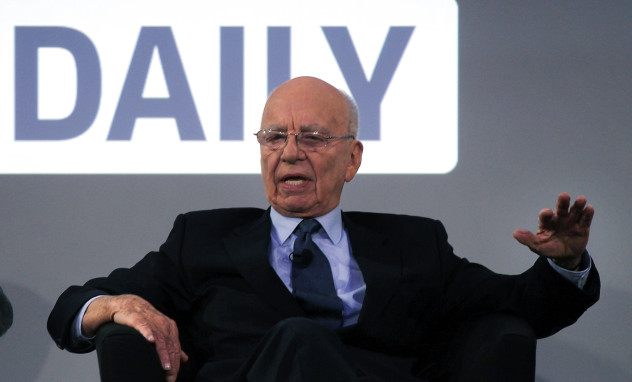
Today, Rupert Murdoch is best known as the founder of the gigantic News Corporation media conglomerate, which stretches from movies to newspapers to the Fox television network. But he didn’t start from scratch. Rupert’s father was the wealthy Australian newspaper magnate Sir Keith Murdoch. Like Rupert, Keith wasn’t afraid of using his news media to seek political influence, once boasting that he had put Prime Minister Joseph Lyons into office and he would remove him if he stepped out of line. He also employed “ruthless measures” to survive Australia’s vicious circulation wars, using his journalists like “a private army.”
Rupert was just 21 when his father passed away, but he had already learned a lot. Inheriting his father’s News Limited, he took personal control of the Adelaide News, quickly increasing circulation and profits. He later founded the Australian, the country’s first national newspaper. Although critics sniffed at his tabloids, Rupert was unimpressed by “snobs who only read papers that no-one else wants.” In 1968, he successfully bid for Britain’s News Of The World, News Limited became News International, and the rest is history.
6Eduardo Saverin
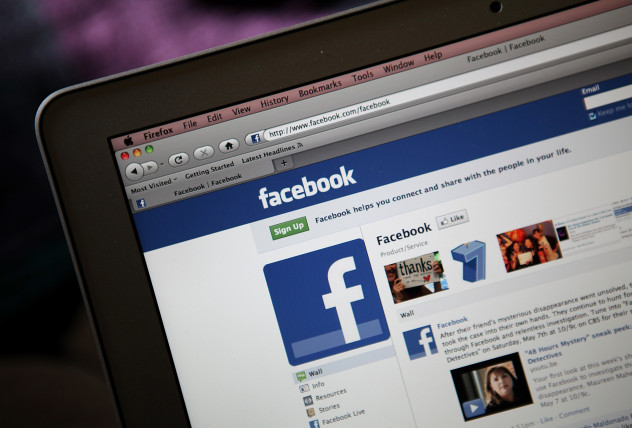
As co-founder of Facebook with Mark Zuckerberg, Eduardo Saverin (along with Dustin Moskovitz and Chris Hughes) benefited from his privileged upbringing. Eduardo’s grandfather founded a chain of children’s clothing retailers, while his father now runs a successful pharmaceutical business in Miami, where the family moved while Eduardo was young. (There are rumors that they moved to avoid kidnapping threats in Brazil, but the family denies it.) Eduardo was an extremely bright child, making the news for beating a chess grandmaster at the age of 13, and was eventually accepted to Harvard, where he met Mark Zuckerberg.
Zuckerberg was the visionary behind the website he initially dubbed thefacebook.com, but none of it would have been possible without Saverin’s money, which subsidized the website’s early growth. In emails at the time, Mark claimed that Saverin was rich because “apparently insider trading isn’t illegal in Brazil,” which seems like exactly the kind of story Eduardo, who wore suits to class and delighted in implying he had Mafia connections, would have enjoyed spreading. In reality, the money probably came from Eduardo’s parents, whose house thefacebook.com was originally registered at. Either way, without the $15,000 Eduardo put up to pay for server space, it’s likely that Facebook would never have gotten off the ground. It didn’t prevent Mark from eventually diluting his shares and forcing him out, although he’s still a billionaire after being awarded a significant amount of Facebook stock in compensation.
5Richard Branson
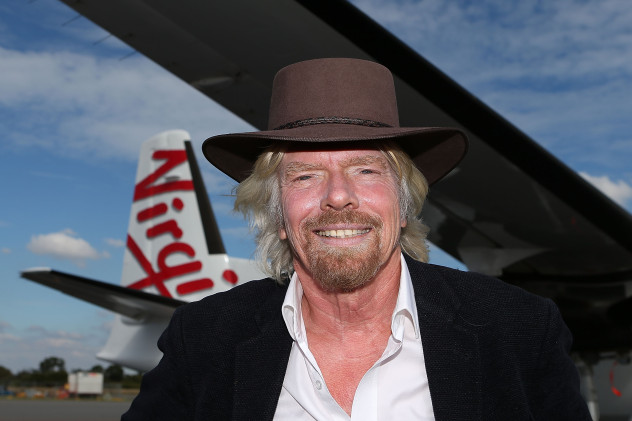
The founder of Virgin Group is famous for his publicity stunts, his playboy lifestyle, and his amazingly diversified investment portfolio, with over 80 companies ranging from airlines to banks to music publishing. In fact, the Virgin name is now so widespread that Branson isn’t actually an investor in many of the companies bearing it, but is essentially just leasing them the brand rights. Experience taught Branson that many new investments fail, hence his ADD-like penchant for diversification, but he didn’t start exactly from scratch.
Although he was not good at school and suffered from dyslexia, his father was a well-to-do barrister and his grandfather was Sir George Branson, a High Court judge and member of the Privy Council. They provided Richard with stability and a financial safety net, as well as a network of contacts that most start-up entrepreneurs could only dream of. Nonetheless, Branson and friend Nik Powell, co-founder of the Virgin Group, admitted they had a lot to learn and chose the name Virgin because of their inexperience.
4Elon Musk
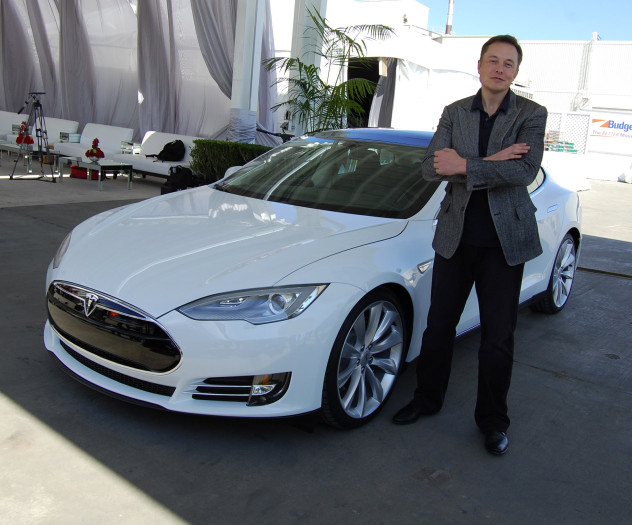
A prominent member of the South African diaspora, Elon Musk is known for his role in creating PayPal, SpaceX, Tesla Motors, and any number of radical ideas for transportation and technology. Elon actually comes from a long line of overachievers. His paternal grandparents were the first people to fly from South Africa to Australia, his maternal grandmother was Canada’s first chiropractor, and his mother is a model who recently appeared nude on the cover of New York Magazine at the age of 63. A big early influence was his father Errol, an engineer and “serial entrepreneur” who has been credited with inspiring his love of technology, not least by buying him his first computer, a Commodore VIC-10, at the age of nine.
Despite this, Musk’s childhood was not particularly carefree. He was viciously bullied at school and multiple accounts have described his relationship with his father as unhappy and borderline abusive. Elon has said that his own children will not be allowed to meet Errol. And Elon does have a better claim to be self-made than the other billionaires on this list. At 17, he defied his parents and left South Africa in order to avoid compulsory military service, explaining that “serving in the South African army suppressing black people just didn’t seem like a really good way to spend time.” He struggled through university in Canada (at one point he was living on less than $1 a day) before dropping out of grad school at Stanford after just two days to found a company called Zip2, which he later sold for $307 million. Still, it seems that he was inspired by his impressive family. As his sister explains: “Without sounding patronizing, it does seem that our family is different from other people. We risk more.”
3Larry Page
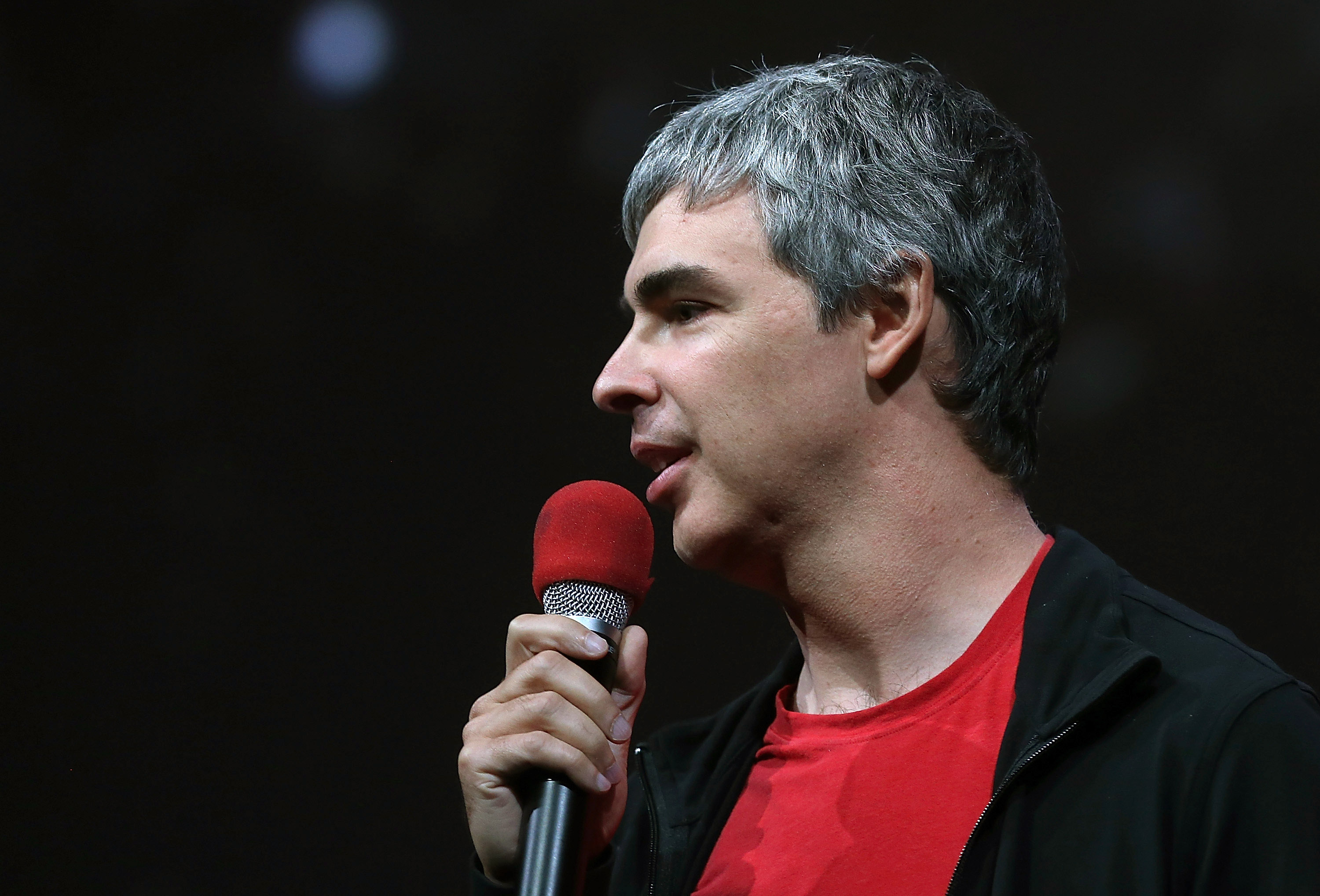
Google co-founder Larry Page had something of a head start when it comes to computing. His father, Carl, is considered a pioneering figure in computer science and artificial intelligence, while his mother, Gloria, taught computer programming at Michigan State University. As a result, Page grew up surrounded by technology, including some of the very first personal computers. He was already using a computer confidently by the age of six and later became the first kid in his elementary school to do his homework on a word processor.
Google’s other co-founder, Sergey Brin, also grew up in a gifted family—his father and grandfather were both math professors—and the two quickly hit it off when they met at Stanford University. Soon, the pair were collaborating on a search engine named BackRub, which eventually evolved into the better-named Google. Page drew on a childhood of tinkering to construct a data center in his dorm room. A few years later, in 1998, Brin and Page’s families would pitch in one last time, helping to raise Google’s initial $1 million in funding.
2Petro Poroshenko
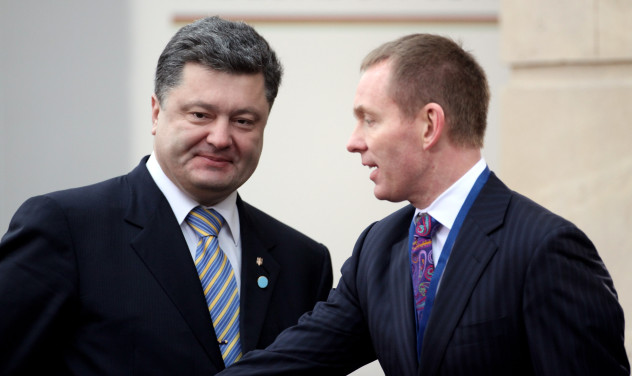
The current president of the Ukraine is known as “the chocolate king” because he made his fortune with the confectionery firm Roshen. He has been a kingmaker of sorts in Ukrainian politics since the reign of President Kutschma in the late ’90s, when he founded the Party of Regions with future president Viktor Yanukovich. Poroshenko also took part in the “Orange Revolution” of 2004, which brought Victor Yushchenko to power, and he was later appointed foreign minister. He also detached himself from the Party of Regions and started his own party, with the not very original name of Petro Poroshenko Block. As well as his sweeter assets, Poroshenko owns a shipyard, car plants, and a number of factories.
Poroshenko’s story isn’t completely one of rags-to-riches, though. His father, Oleksiy, was head of a number of state enterprises under the Soviet Union and apparently once spent two years in jail for stealing state assets. Father and son later teamed up to form the Ukrprominvest entrepreneurial association, which the older Poroshenko still manages, retaking control when his son entered politics. The father-son team also founded the Roshen candy company together, providing the wealth which propelled Petro to the top of Ukrainian politics.
1Ross Perot
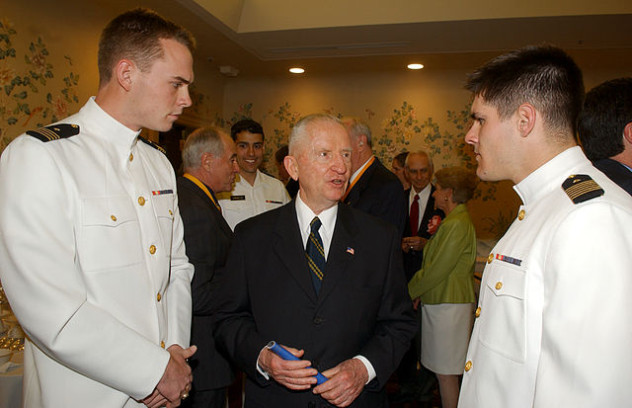
Although Perot has legitimately made billions with his early investments in data processing, he owes a lot to his dad, Gabriel Ross Perot. An old-school Texas commodities broker, Gabe Perot made a mint in cotton wholesaling, and his son learned a lot about charm and showmanship from watching his dad at work. According to biographer Ken Gross, Perot got his start in business when his dad started taking him to cattle auctions as a teenager. Under his father’s watchful eye, he started out buying and selling saddles and other equipment, before eventually graduating to cattle and horses.
After a stint in the Navy, Perot joined IBM, where he learned the ropes of the developing computer business. In the early 1960s, he decided to strike out on his own and founded Electronic Data Systems (EDS). But success didn’t come right away, as it took Perot over 70 attempts to gain his first contract (with Frito-Lay). Success quickly followed, and the company would eventually make Perot billions and finance his third-party runs for president in 1992 and 1996. There’s no question that his dad would have been proud.
A. J. Simonson is a junior engineer, aka an Oompa Loompa of technology. His field of choice is 3-D printing. History, languages, politics, and economy are side interests to his main passions: cars and planes.
